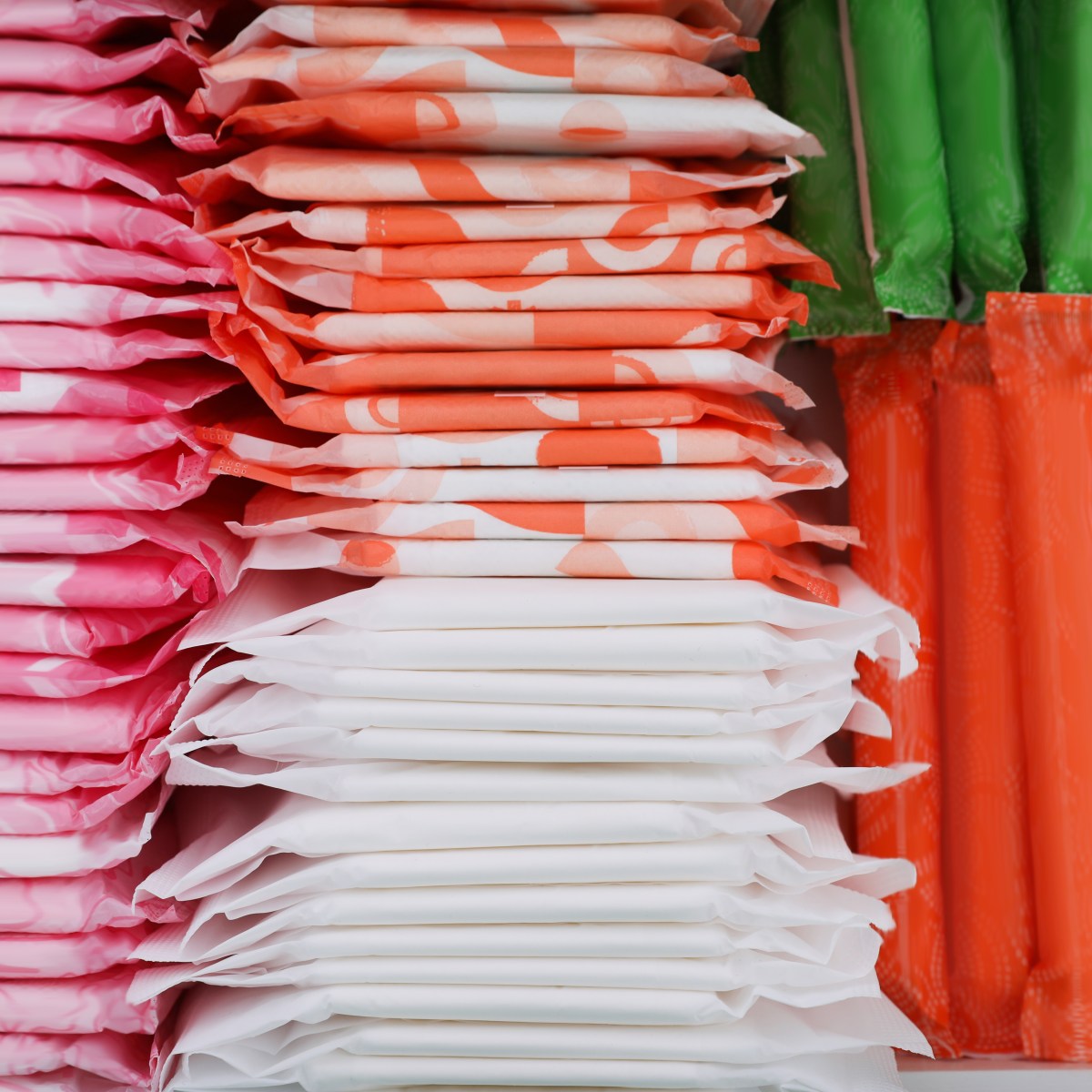Right now, 800 million people worldwide are on their period. One thing is true for all of them: their period is more than just a personal matter.
This week is Environmenstrual Week, organised by the Women’s Environment Network (WEN). More than just clever wordplay, it urges us to reflect on the far reaching and overlooked effects of menstruation on health, society, and the environment.
When we discuss menstrual justice in the UK, the focus often shifts to the developing world, highlighting issues such as access to education and shame surrounding certain menstrual practices. The assumption that we’ve solved all our period related problems in the UK is all too pervasive, but in truth, there’s a long way to go.
Periods are an environmental justice issue Periods intersect with critical issues of environmental harm, health risks, misogyny, and inequality. In the UK alone, around 200,000 tonnes of waste are generated each year from disposable period products, with a single pack of pads containing as much plastic as four plastic bags. Many of these products contain harmful chemicals, like endocrine disruptors and carcinogens, which can contaminate our environment and waterways. And worryingly, these chemicals can be easily absorbed into the body, posing health risks to users. Despite this, manufacturers are still not required to disclose their full list of ingredients, leaving consumers in the dark about what they are exposing themselves and the environment to.
Period poverty adds another layer to these injustices. The cheapest products often contain higher levels of harmful chemicals, leaving many without access to safe alternatives. A 2023 poll by ActionAid found that 21 per cent of people who menstruate across the UK now face period poverty, forcing many to keep tampons in longer than recommended, reuse disposable pads, or use makeshift alternatives like tissues or clothing, practices which can be dangerous to their health. Seventeen per cent of people who menstruate in the UK report having missed school or work, which adversely affects their education and careers, perpetuating inequalities within our society.
Stigma and misogyny are exacerbating the environmental consequences Nearly half of girls in the UK report feeling embarrassed by their periods, whether due to fears of leaking, being seen carrying period products, or being the target of jokes. But period stigma goes beyond embarrassment. It is woven into how period products are designed, marketed, and used, contributing to both personal health risks and environmental harm.
For example, the misconception that menstrual blood is unclean has driven the unnecessary inclusion of harmful biocides in period products and the expectation that they resemble sterile medical supplies, often resulting in excessive bleaching to achieve a bright white appearance. But this blood is no less sanitary than any other blood in the body. If bandages and plasters don’t include biocides, why should period products?
Stigma has also contributed to a preference for disposable products as people are made to feel uncomfortable with their own blood. This encourages them to dispose of menstrual products as quickly as possible and creates a fear that reusable pads are unhygienic and can’t be properly cleaned by washing.
Pressure to conceal menstruation has even influenced packaging design. Many people who menstruate feel self conscious about the rustling of pad wrappers, and to address this, manufacturers add harmful endocrine disrupting phthalates into the wrappers, to make them softer and more flexible.
What needs to change? The first step is to break the taboo surrounding periods. By dispelling misinformation and shame through open dialogue, we can challenge the negative influences on period product design. These discussions offer opportunities for education, promoting reusable products and empowering individuals, to manage their periods in ways that best suit them.
However, change must involve more than just conversation. Manufacturers need to be transparent about the ingredients in their products – consumers have the right to know what they are putting into their bodies. Safe, non toxic products should be the norm, and accessible and affordable for all. No one should be forced to choose between safe period products and other basic necessities. Whilst governments in England, Wales, and Scotland are committed to providing free menstrual products in schools and colleges, more must be done to support everyone facing period poverty across the UK.
This Environmenstrual Week, WEN is advocating for all of these changes in the form of the Menstrual Health, Dignity, and Sustainability Act, which frames menstruation as both a human rights and public health issue. It calls for equal access to sustainable period products, improved menstrual education, independent testing, transparent product labelling and stronger regulations, to protect both menstrual health and the environment.
Whether or not you’re one of the 800 million people menstruating right now, keep periods in your mind today. This conversation shouldn’t end here. By engaging in this discussion and supporting initiatives like WEN’s campaign, we can all contribute to the changes needed for improved menstrual health, dignity, and sustainability.
Discover more from Inside track
Subscribe to get the latest posts sent to your email.
